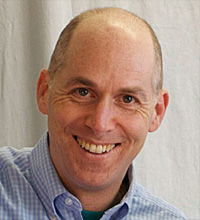Even within the healthiest family systems, advisors to high net worth families have to balance competing agendas, challenging family dynamics and the preservation of wealth. If one member of a family “fails to thrive” or struggles with substance use or mental health issues, the remaining family members may experience intense emotions ranging from frustration, resentment to denial. In the same way that it is said “It takes a village to raise a child,” it can take a “village” of advisors to manage a complex family system when a behavioral health issue is present, as illustrated by the story of Catherine.
Catherine, a 25-year old woman, is a shareholder in a thriving family manufacturing business started by her father, Tim. Tim is the company’s CEO and wants nothing more than for his children to grow the company he founded. Catherine has two siblings- Mary and John- who have built successful careers within the family enterprise. Mary helps to oversee operations and John works in business development. They are competent, liked by the staff members at the company and dedicated to continuing their father’s legacy. Unlike Mary and John, Catherine has not found a position within the company. She starts in one department, fails to complete tasks and leaves the company for a period of time to “explore a new endeavor.” She constantly requests additional funds from her trustee (Paul, the family’s attorney) to start a business or make an investment. Her plans lack focus and follow through
Tim and Catherine’s mother, Ann, have worried about Catherine since she was a teenager. Catherine experimented with drugs and alcohol at any early age, barely graduated from high school and dropped out of college in her second semester. After Catherine entered her second rehabilitation center for alcohol issues at age 22, Tim asked Paul to include language in Catherine’s trust documents requiring her sobriety to have full access to her assets by age 30. Over the past several months, Catherine has been exhibiting erratic behavior- showing up at work late or not at all, failing to complete tasks and snapping at her siblings when questioned. Mary went to her father to discuss some of the issues with Catherine, and he immediately became concerned that Catherine had relapsed.
Because of the recent growth of the company, Tim engaged a family business consultant, Bill, to help define strategy and evaluate the management team, which technically includes Mary, John and Catherine. Tim mentioned some of Catherine’s past issues to Bill. As Bill interviews employees, he gains additional insight into Catherine’s behaviors and uncovers deep sibling resentment towards Catherine. Bill worries that an objective evaluation may be hard to render given these dynamics.
Who makes up the village?
- Family: Tim (father), Ann (mother) Mary (daughter), John (son), Catherine (daughter)
- Family business consultant: Bill
- Trust and estate attorney/trustee: Paul
What are the primary motivations for each party?
- Tim/Ann: To keep the family together and successfully transition the business
- Mary/John: To continue the growth of the family business and maintain a relationship with Catherine
- Catherine: Unknown
- Bill: Provide an objective analysis of the growth strategy and management team’s strengths and growth opportunities
- Paul: To implement the objectives of the trust
What are the challenging dynamics at stake?
- As the trustee, Paul must ensure that Catherine receives her distributions according to the language in the trust and manages her finances responsibly. How does he ensure that she is sober and if she is not, what is his responsibility in terms of supporting her?
- Can Bill provide an accurate report of Catherine’s strengths, given her performance at the company? Is this a “backdoor” intervention or confrontation of Catherine?
- Can Mary and John maintain healthy relationships with Catherine while she is receiving a salary at the company despite not really working there?
- How can Tim and Ann support Catherine without unintentionally supporting any destructive behaviors she may have? Will they be excluding her unfairly if they ask her to step down from the family business?
After gaining permission from Tim, Bill calls a recommended addiction expert, Nancy. He talks with Nancy for an hour and lays out the information that he has. Nancy asks many questions and suggests that Bill coordinate a meeting with the family (excluding Catherine) and Paul.
Nancy mentions that it will be important to gather as much information as possible from all family members and involved advisors to better understand the context.
The results of the meeting were as follows:
- Tim agreed that it was unfair to allow Catherine to continue in the family business. He decided that Bill could not perform a fair evaluation of her performance, given her inconsistent work history. Bill would focus on working with Mary, John and the other employees and would also examine policies of the business related to absenteeism.
- Tim, Ann, Mary and John all voiced their concerns around Catherine’s substance use and frequently shifting goals. John and Mary were able to candidly discuss their frustrations over feeling helpless, and Ann got tearful as she talked about Catherine’s past history of substance use.
- Nancy offered treatment options – both inpatient and outpatient approaches. The family asked Nancy to facilitate a meeting with Catherine and family members to discuss their concerns and provide treatment solutions.
- Tim and Ann agreed to engage in family coaching with Nancy to explore how to set boundaries in a compassionate manner, while still emotionally supporting Catherine.
- Paul suggested that Nancy serve as a distribution advisor to him and provide regular updates about Catherine’s progress, so that he could ensure that any distributions Catherine received were given when she exhibited stable behaviors.
While there are no guarantees that any given approach will ameliorate the chronic condition with which Catherine struggles, the odds are dramatically increased by the treatment offered, setting clear boundaries and the collaborative efforts of the team.
Addiction thrives in secrecy and the family’s plan begins to bring the issues to the fore. This coordinated approach also helps the family and advisors obtain valid information and share the difficulties of engaging productively with a person demonstrating the disruptive behavior common in addiction. Moreover, the plan balances many priorities, as it protects the well-being of the parents and siblings, begins to address issues for the family enterprise, enhances the effectiveness of advisors, and increases the odds that Catherine will embrace recovery.
About the contributors:
 Michael Madera is a consulting psychologist and executive coach with 18 years experience in the areas of individual development and organizational consulting. He has business experience in line and consulting roles. As an entrepreneur, he managed two food products companies before seeking his psychology degree. Michael holds the Advanced Certificate in Family Business Advising and teaches the GEN 102 course “Self in Systems: Systemic thinking, genograms & the role of the family enterprise advisor.” Michael can be reached at [email protected].
Michael Madera is a consulting psychologist and executive coach with 18 years experience in the areas of individual development and organizational consulting. He has business experience in line and consulting roles. As an entrepreneur, he managed two food products companies before seeking his psychology degree. Michael holds the Advanced Certificate in Family Business Advising and teaches the GEN 102 course “Self in Systems: Systemic thinking, genograms & the role of the family enterprise advisor.” Michael can be reached at [email protected].
 Arden O’Connor founded O’Connor Professional Group to address the needs of families and individuals struggling with an array of behavioral health issues. As a family member of several people in recovery, Arden is passionate about helping families and individuals navigate the highly fragmented treatment system in a way that can help create positive outcomes and allow families to heal. Arden can be reached at [email protected].
Arden O’Connor founded O’Connor Professional Group to address the needs of families and individuals struggling with an array of behavioral health issues. As a family member of several people in recovery, Arden is passionate about helping families and individuals navigate the highly fragmented treatment system in a way that can help create positive outcomes and allow families to heal. Arden can be reached at [email protected].





